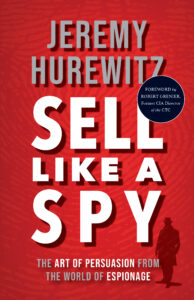 NEW YORK CITY–In “Sell Like a Spy” (Diversion Books, Aug. 27, 2024), espionage expert and corporate intelligence agent Jeremy Hurewitz dives into the clandestine world of intelligence-gathering – drawing from his extensive network of former CIA, FBI, and special forces operatives – to unveil field-tested spycraft strategies.
NEW YORK CITY–In “Sell Like a Spy” (Diversion Books, Aug. 27, 2024), espionage expert and corporate intelligence agent Jeremy Hurewitz dives into the clandestine world of intelligence-gathering – drawing from his extensive network of former CIA, FBI, and special forces operatives – to unveil field-tested spycraft strategies.
Hurewitz knows that spies are the world’s best salespeople. He’s built his career around former CIA case officers, FBI agents, and other intelligence officers—people like Steve Romano, former Chief Negotiator at the FBI; former Director of the Secret Service Mark Sullivan; General Stanley McChrystal (Ret.), former commander of the Joint Special Operations Command; and former member of the CIA’s Senior Intelligence Service John Sipher.
Drawing on in-depth interviews about their skillsets, stunning anecdotes from the history of espionage, and science-backed principles of emotional intelligence, Hurewitz has created a handbook of tradecraft lessons and tactics that will strengthen readers’ ability to foster better relationships, to persuade, and to sell anything—in business and everyday life.
Though a spy’s targets may be odious — terrorists, criminals, corrupt diplomats, and more — the agent’s focus is on cultivating relationships and understanding people’s motivations to better persuade them to give something up: information, hostages, money, or simply their feelings. Elicitation, Radical Empathy, Disguise, and RPM (Rationalize, Project Blame, and Minimize Fault) are just a few of the methods in Sell Like a Spy that readers can use as sales professionals or people who simply want to connect more deeply with friends and family.
Packed with interviews and anecdotes from intelligence officers of all stripes, and with a foreword by Robert Grenier, former Director of the CIA’s Counterterrorism Center, “Sell Like a Spy” puts James Bond in its dust, offering a secret playbook of persuasion tactics from the real world of the Secret Service, special forces, law enforcement, and international espionage.
“Sell Like a Spy: The Art of Persuasion from the World of Espionage”
Jeremy Hurewitz | Aug. 27, 2024 | Diversion Books | Nonfiction
Hardcover | ISBN: 978-1635769937 | $28.99
About the Author
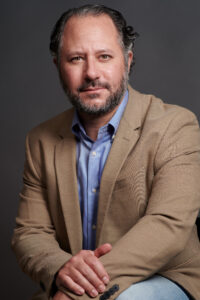 Jeremy Hurewitz spent the first decade of his career overseas building the media association Project Syndicate while based out of Prague and Shanghai. He spearheaded a business development strategy that saw the association grow from a few dozen member newspapers in mostly Eastern Europe, to a truly global association of over 300 newspapers in over 100 countries.
Jeremy Hurewitz spent the first decade of his career overseas building the media association Project Syndicate while based out of Prague and Shanghai. He spearheaded a business development strategy that saw the association grow from a few dozen member newspapers in mostly Eastern Europe, to a truly global association of over 300 newspapers in over 100 countries.
During Jeremy’s time abroad he also worked as a freelance journalist writing on a variety of topics for dozens of publications around the world. Jeremy continues to write regularly with recent articles appearing in Bloomberg, USA Today, and The Hill.
Upon returning to the U.S. after his time overseas, Jeremy settled in New York City and worked for several well-known global consulting firms in the world of corporate security. These companies are staffed by former intelligence officers and Jeremy worked closely with these former spies. He came to notice how good these individuals were at connecting with clients, how quickly they were able to establish rapport and put people at ease and get them to open up. In addition to former spies, his colleagues included former members of the FBI and the law enforcement community, the Secret Service, the military, the State Department, and other government agencies. Jeremy learned unique and impactful skills from all these former government employees, and he began utilizing the methods he picked up. He quickly noticed the tangible difference it made in his salesmanship and his ability to connect with clients. By practicing the same methods that government officials use to develop relationships and overcome a range of challenges, Jeremy was able to achieve some of the biggest and most meaningful sales of his career.
Jeremy has synthesized these lessons from government service into the Sell Like a Spy program and works with clients to share these strategies to help them improve their ability to connect with targets, develop creative approaches to close deals, and overcome challenges. Find out more about him and his book at www.selllikeaspy.net.
Praise for Jeremy Hurewitz and “Sell Like a Spy”
“Brilliantly illuminates two misunderstood skills: spying and sales! Jeremy Hurewitz pulls back the curtain on effective spying to reveal thoughtful, empathetic people – the same kind we trust enough to buy houses, cars, and businesses from. A great guide to mastering the intensely human side of building trust that determines success or failure.”
– Gen. Stanley McChrystal, former commander of U.S and International Security Assistance Forces (ISAF) Afghanistan and former commander of the nation’s premier military counter-terrorism force, Joint Special Operations Command (JSOC)
“Part memoir, part practical guide, Jeremy Hurewitz’s “Sell Like a Spy” brings together lessons from the world’s most elite information gatherers and people influencers, distilling the spymaster untrained readers can apply to succeed in business. Hurewitz draws on decades of experience as an investigative journalist turned jet-setting corporate security expert, as well as interviews with intelligence agents, law enforcement officials, hostage negotiators, special forces, and more, to ground his writing in real-life case studies. An essential read for anyone interested in becoming a better salesperson – or a half-decent spook!”
– Ian Bremmer, President, Eurasia Group
“Popular culture portrays salesmen and spies as transactional and inauthentic. Jeremy Hurewitz knows what the best sales and intelligence professionals understand: espionage and business are about relationships, and the secret sauce of success is the ability to seek connection and develop purposeful and authentic relationships. In ‘Sell Like a Spy’ Hurewitz illustrates with stories and examples that persuasion is not the ability to find the right words, but the ability to build real relationships of trust and empathy, and even share vulnerability. ‘Sell Like a Spy’ is a fun primer on the skills, traits and professional discipline to succeed in business.”
– John Sipher, founder of Spycraft Entertainment, previously a member of the CIA’s clandestine service for 28 years
“Reading ‘Sell Like a Spy’ is time well-spent for anyone, whether you’re a salesperson or just someone who wants to get along with people in your everyday life. Jeremy Hurewitz brings his real-world experience and provides readily usable techniques that are easy to assimilate. From the streets of Pakistan to the boardrooms of New York City, ‘Sell Like a Spy’ will help you listen, connect, and influence.”
– Stephen J. Romano, former FBI Chief Hostage Negotiator
“The lessons of espionage directly relate to sales – it all comes down to the art of human persuasion. That’s why this book is so useful and fascinating – because modern sales teams can adopt practices that have been employed by governments for years. And not in a nefarious way but in a way that actually builds trust. This is a great read and a lot of fun!”
– Sam Jacobs, CEO & Founder, Pavilion
More praise for “Sell Like a Spy” HERE
In an interview, Jeremy Hurewitz can discuss:
- The riveting world of espionage through his unique journey from journalist to corporate intelligence operative
- The fascinating psychology behind spycraft tactics, why they are so effective, and how they can be applied to elevate your game in business and everyday scenarios
- Intelligence insights from his extensive network of former CIA, FBI and counterterrorism operatives (including former FBI chief hostage negotiator Gary Noesner, former head of the CIA’s Counterterrorism Center Bob Grenier, and Gen. Stanley McChrystal)
- Cultivating relationships by having a better understanding of persuasion and human motivations
- The role of emotional intelligence in both spycraft and everyday interactions with others, whether work or personal
- The art of negotiation, from sealing high-stakes business deals to convincing your teenager to do their homework
- How to detect deception and read body language to understand your counterparty better
- How to overcome challenging situations through insights from elite law enforcement agents
- Agent development methods that bridge the worlds of sales and everyday relationships, unlocking your full potential in both realms
- Moving beyond the theoretical and curating a handbook-like approach to “Sell Like a Spy” – including field-tested strategies and government tactics
An Interview with
Jeremy Hurewitz
Can you share a bit about your professional background and how it led you to explore the intersection of sales and espionage in your work?
I crossed paths with spies when I was a journalist overseas and I reported on intelligence matters, all of which increased my interest in this world. Returning to the U.S. I jumped at the chance to work directly with them in the corporate security world, and I soaked up lessons from these individuals. At the same time, I was in a new position of cultivating relationships with clients, so I was immediately putting these lessons to work and seeing results. As I continued in this industry I came to learn from other former government officials – FBI agents, military negotiators, secret service agents, members of the special forces and others – and I applied lessons from these amazing individuals as well.
“Sell Like a Spy” draws heavily from your network of former CIA, FBI, and counterterrorism agents. What inspired you to tap into these connections, and what unique insights did they bring to the table?
Even though I never served in the military or government, I’ve always admired those who have, and that admiration drew me to these people, and I’ve wanted to learn more about them and how they do their often dangerous work. Because the work they were involved in was so high stakes, they had unique experience and skill-sets that they applied to these situations. Applying radical empathy, for instance, in order to really find a way to connect with and recruit a potential agent who might be a terrible person that they would otherwise someone they would want nothing to do with is an example, and one with an application to the world of sales, where salespeople often have to sell to people who they don’t like. Or negotiating like an FBI agent needing to understand whether the hostage-taker is motivated by an instrumental or expressive need, where there is also a direct application to the business world.
Why are spies the best salespeople?
Spies are often recruited into the intelligence world because of their unique personality gifts and emotional IQ. They cultivate these instincts and refine them to become masters of connecting deeply with their targets, no matter how sketchy those individuals may be. I believe that convincing someone to commit treason against their country or organization is the hardest sale to make, and one that spies are experts at. They apply battle-tested methods of emotional engagement, an understanding of body language and the role it plays in rapport building, along with cultural smarts to become masters of the art of sales.
Your book emphasizes the application of spycraft tactics in both business and everyday life. How can these strategies be implemented in different contexts?
Anyone in business should first start practicing the techniques in the book in their everyday life, which offers low-stakes chances to try new rapport-building methods with friends and family. Skills like mirroring (both physical and verbal) can be tricky to get used to and can be easily seen if done poorly, so practicing is a good idea. But that practice in everyday life is a good example of the universal aspect of these techniques. Practicing empathy, being a good active listener and paying attention to body language are not just skills that can help someone make a sale or recruit a foreign agent to conduct espionage – they are methods that can bring us closer to people in any circumstance.
What do you hope readers will take away from “Sell Like a Spy?”
I hope it will bring more fun and intellectual satisfaction to their work and help make people more successful. I write about people leaning in their passions, cultivating those passions, and how doing so can open up hidden doors to success – I also hope that by doing that people will lead richer lives. I hope readers will have better conversations, learn the value of listening, and that in doing so we might foster a bit more societal amity than what we have in the divisive age we’re living through.
What roles do empathy, vulnerability, intellectual curiosity and cultural awareness play in forging meaningful connections in espionage and the business world alike?
These are essential traits in the most successful spies and salespeople. The idea of vulnerability is personal to me, and I share how I lost half my hearing and how that misfortune has had the silver lining of helping to draw people close to me when I share what I went through. Not all of us experience tragedy, but we all experience misfortune and commune together when we share these experiences – people almost automatically respond in-kind when you do so and it will draw you closer. Cultural awareness – whether it’s at the level of different countries or just different subgroups within an organization – can give you an advantage when seeking to cultivate someone.
In “Sell Like a Spy,” you discuss the importance of cultivating relationships and understanding people’s motivations. Could you elaborate on how these principles from the world of espionage translate into effective sales strategies?
Spies and the support groups around them invest tremendous efforts in ascertaining what might motivate a potential agent to spy for their government. For instance, if they find out a diplomat has a child that can’t get the medical care they need in their impoverished autocratic country, they might consider the right overtures from a spy to work for them. In the sales world, not enough is done to understand a prospects’ motivation – salespeople think they are charming and their product or service is compelling and that’s enough. But if you know a bit more about what is going on with that company (is it struggling or thriving?) or more about your target’s career and life you might be able to subtly push different buttons in your pitch to connect with them. This is just one example.
Salespeople, despite their charisma and expertise, often struggle with active listening, missing out on crucial client engagement. Why is this such a challenge? What successful techniques do spies use to be better listeners?
The answer resides in our evolution. When archaic man was wandering the plains language developed in short, clipped phrases so they could keep an eye out for opportunities and dangers. The mind still works in this way, processing small bits of information and then retreating internally to assess how this fits into our world. Our minds then work to think of a similar anecdote, or a contradictory opinion, rather than really taking in what the other side is saying. But if you can steady your mind to really focus on the individual you’re speaking with and what they are saying, and if you ask clarifying questions, your conversational counterpart will feel seen and respected and think highly of you.
What is it like to be a spy? Is it anything like we see in the movies?
I’ve only been a corporate spy, not working for any government. When I do the work I do I need to get people to open up to me quickly and share their point of view, and that’s part of what’s in the book. But I do know a good bit about government-sponsored espionage and I write in the book about how it is quite far from what you see in the movies. I think a better analogy would be making friends with someone and then being there for them during some difficult times. Most spies agree that their job is closer to that of a therapist than Jason Bourne.
What are defusion skills, and how do spies use them? How can we use them in a business setting?
It’s more about how FBI and other law enforcement use them, that’s what I write about in the book. FBI hostage negotiators, for instance, are experts at maintaining a slow, calm speaking voice because people tend to revert to the social mean that someone is insisting upon. So a quick lesson from that is if you’re in a meeting and someone gets angry and raises their voice, don’t raise your voice as well, continue to speak calmly and somewhat slowly and hopefully they calm down. Also, remain seated if you can, invite that person to sit, because if you stand up it will raise the temperature of the encounter.
What is mirroring?
Mirroring is a short-cut to rapport building using human psychology. We are programmed to mirror – it’s one of the first things we do as infants looking up at people around us to mirror their behavior and observe how to act like a human being. It has been shown to have a physiological explanation rooted in the neurons of the human brain. When you combine physical mirroring with verbal mirroring – which is a key tool in the tool-kit of FBI hostage negotiators – you can powerfully augment your process of connecting with someone.
What can we learn from how spies navigate cultural differences and build trust in high-stakes situations?
You need to get outside yourself and your particular cultural experiences and how you view the world and allow yourself to not pass judgment. Spies are deeply mindful of being sensitive to who they are talking to and where they might be coming from, and we can all do that to foster great connections. Whether you’re a New Yorker dealing with someone from the midwest or you’re from Texas and talking to someone from China, being empathetic and sensitive to cultural differences, and trying to understand them, can distinguish you from others.
How does your book address detecting deception, particularly in corporate environments?
It references how the FBI and other law enforcement agencies use verbal and nonverbal clues to try to understand whether someone is not fully telling the truth. I don’t believe that anyone can be “a human lie detector” despite what some claim; humans are simply too complex. But there are some very strong methods you can utilize to see a red flag in someone’s behavior – whether it’s their failure to answer a question directly or being cold in a room where the temperature is comfortable – to make better decisions about whether someone is being deceptive.
What’s next for you?
I’m focused on this book reaching as wide an audience as possible. While the methods in this book are great for corporate sales, I highlight whenever I can that there are “skills for everyday life,” and I have a strong desire to promote that because I want people to have better conversations, to connect more deeply, especially because of how highly polarized society is at the moment. I want to help people to lean into their passions and interests, to develop new ones, because it can open hidden doors to success and lead to a more enriching life. And I want to highlight the world intelligence professionals, the real work, not the Hollywood version, because I deeply admire their skills, experience, and public service.
A former award-winning journalist with national exposure, Marissa now oversees the day-to-day operation of the Books Forward author branding and book marketing firm, along with our indie publishing support sister company Books Fluent.
Born and bred in Louisiana, currently living in New Orleans, she has lived and developed a strong base for our company and authors in Chicago and Nashville. Her journalism work has appeared in USA Today, National Geographic and other major publications. She is now interviewed by media on best practices for book marketing.


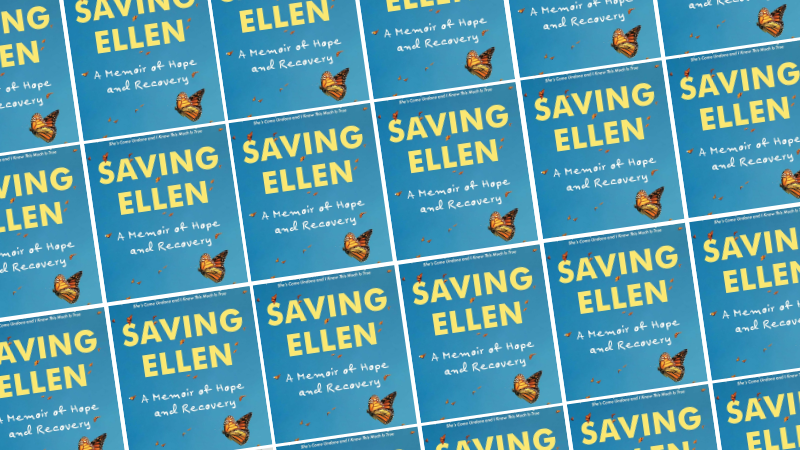
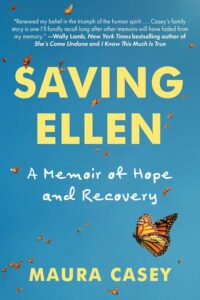 In her debut memoir, “Saving Ellen: A Memoir of Hope and Recovery” (Skyhorse Publishing, April 1, 2025), journalist Maura Casey crafts a vivid and poignant narrative of a working-class family’s resilience in the face of a terminal diagnosis.
In her debut memoir, “Saving Ellen: A Memoir of Hope and Recovery” (Skyhorse Publishing, April 1, 2025), journalist Maura Casey crafts a vivid and poignant narrative of a working-class family’s resilience in the face of a terminal diagnosis.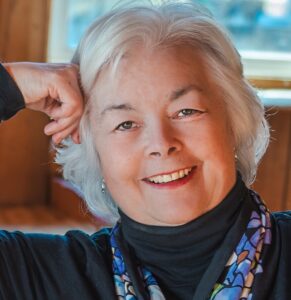 Maura Casey grew up in an Irish-American family in Buffalo, New York, the youngest of six children. For more than 30 years, Casey was an opinion writer for three New England newspapers and The New York Times, where she had a seat on the exalted Times editorial board. Over the course of her career, Casey won 45 state, regional and national awards for her writing. She and her husband Pete have two adult children and two grandchildren. They live on a small Connecticut farm with their two dogs and a barn cat. Casey writes a weekly column, Casey’s Catch, (
Maura Casey grew up in an Irish-American family in Buffalo, New York, the youngest of six children. For more than 30 years, Casey was an opinion writer for three New England newspapers and The New York Times, where she had a seat on the exalted Times editorial board. Over the course of her career, Casey won 45 state, regional and national awards for her writing. She and her husband Pete have two adult children and two grandchildren. They live on a small Connecticut farm with their two dogs and a barn cat. Casey writes a weekly column, Casey’s Catch, (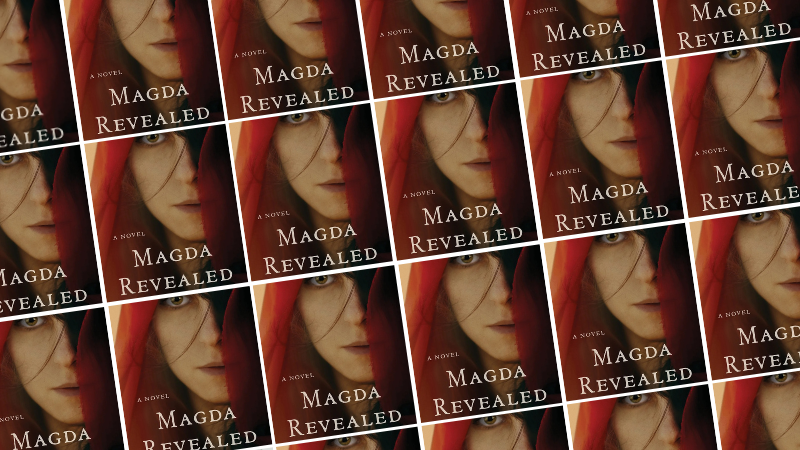
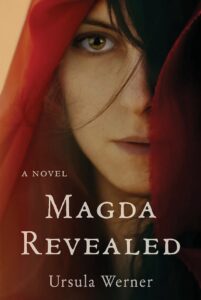
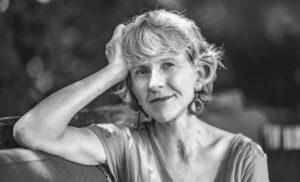 Ursula Werner
Ursula Werner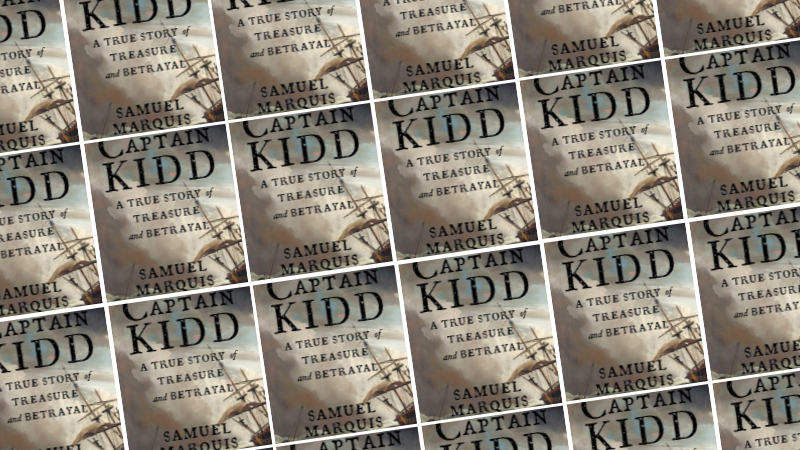
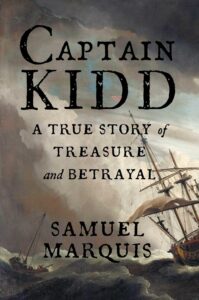 DENVER, Colorado
DENVER, Colorado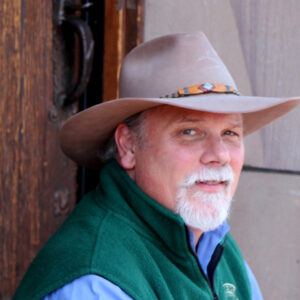 The ninth-great-grandson of legendary privateer Captain William Kidd, Samuel Marquis, M.S., P.G., is a professional hydrogeologist, expert witness, and bestselling, award-winning author of 12 American nonfiction-history, historical fiction, and suspense books, covering primarily the period from colonial America through WWII. His American history and historical fiction books have been #1
The ninth-great-grandson of legendary privateer Captain William Kidd, Samuel Marquis, M.S., P.G., is a professional hydrogeologist, expert witness, and bestselling, award-winning author of 12 American nonfiction-history, historical fiction, and suspense books, covering primarily the period from colonial America through WWII. His American history and historical fiction books have been #1 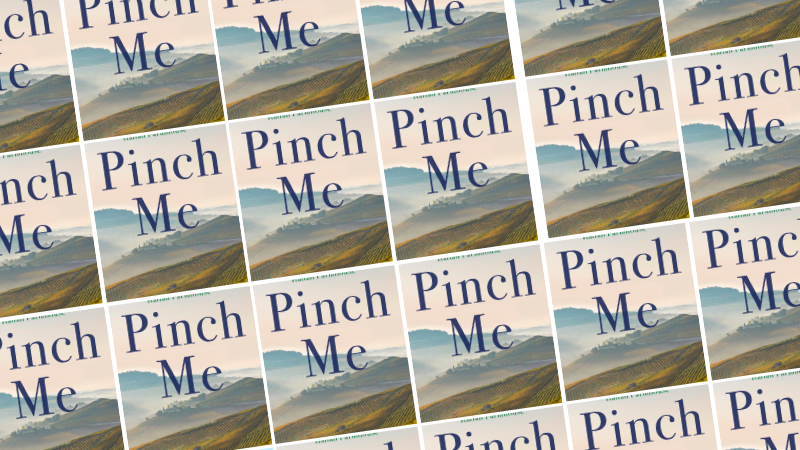
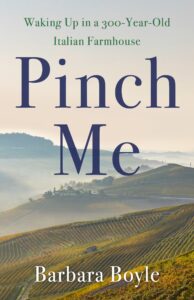 SAN FRANCISCO
SAN FRANCISCO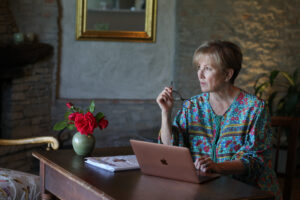 For years, Barbara Boyle enjoyed a colorful worldwide career as a creative director at Saatchi & Saatchi, Grey, Lowe and other advertising agencies, creating commercials and stories for Procter & Gamble, Johnson & Johnson, Mars Inc, and dozens of other marketers. Always a writer, this is the first time she has had the time required to author a book. Her flash fiction has appeared in Sky Island Journal, Star 82 Review, Flash Fiction Magazine, and other literary journals. Food and wine have also been a lifelong passion of hers. While living in Paris, she took the Regional French Cuisine course at Le Cordon Bleu and later completed the professional cooking course at The Institute of Culinary Education in New York. She now resides in a farmhouse in Piemonte, Italy with her husband, Kim, surrounded by orchards, vineyards and barking deer, and maintains a home in San Francisco. Find out more about her at
For years, Barbara Boyle enjoyed a colorful worldwide career as a creative director at Saatchi & Saatchi, Grey, Lowe and other advertising agencies, creating commercials and stories for Procter & Gamble, Johnson & Johnson, Mars Inc, and dozens of other marketers. Always a writer, this is the first time she has had the time required to author a book. Her flash fiction has appeared in Sky Island Journal, Star 82 Review, Flash Fiction Magazine, and other literary journals. Food and wine have also been a lifelong passion of hers. While living in Paris, she took the Regional French Cuisine course at Le Cordon Bleu and later completed the professional cooking course at The Institute of Culinary Education in New York. She now resides in a farmhouse in Piemonte, Italy with her husband, Kim, surrounded by orchards, vineyards and barking deer, and maintains a home in San Francisco. Find out more about her at 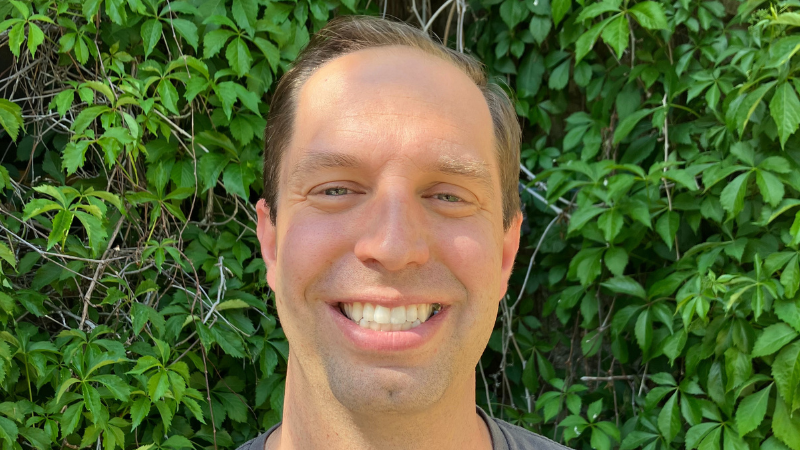




 NEW YORK CITY
NEW YORK CITY Jeremy Hurewitz spent the first decade of his career overseas building the media association Project Syndicate while based out of Prague and Shanghai. He spearheaded a business development strategy that saw the association grow from a few dozen member newspapers in mostly Eastern Europe, to a truly global association of over 300 newspapers in over 100 countries.
Jeremy Hurewitz spent the first decade of his career overseas building the media association Project Syndicate while based out of Prague and Shanghai. He spearheaded a business development strategy that saw the association grow from a few dozen member newspapers in mostly Eastern Europe, to a truly global association of over 300 newspapers in over 100 countries. 
